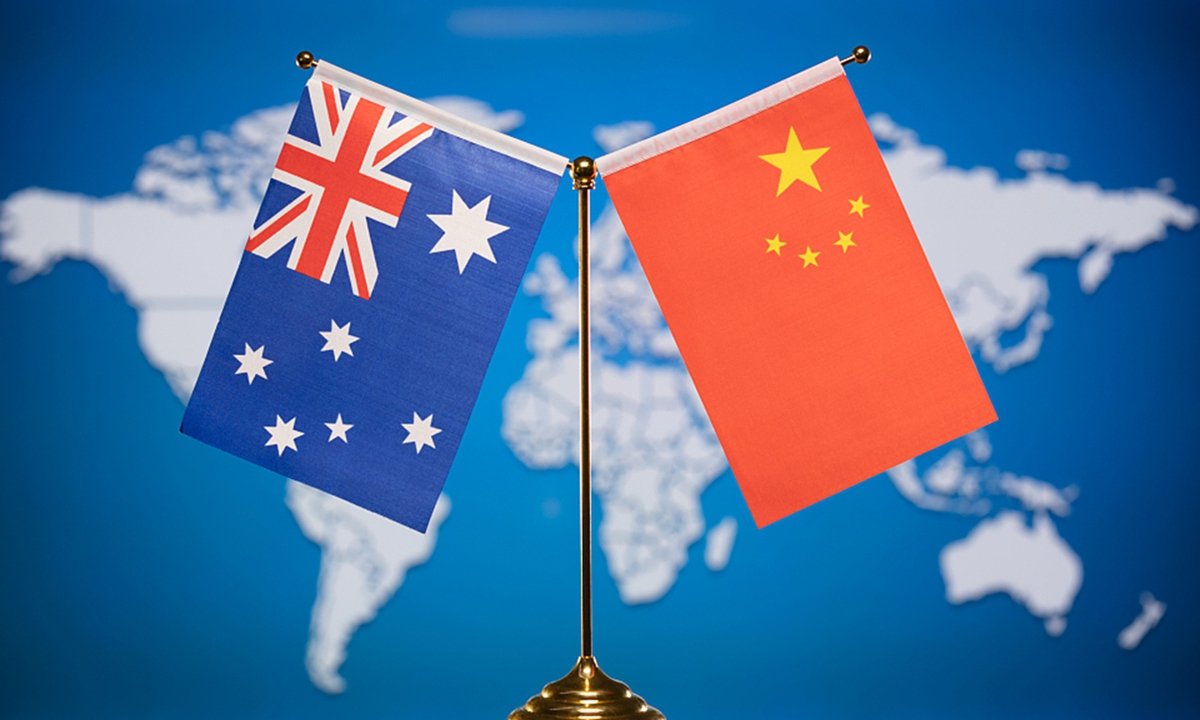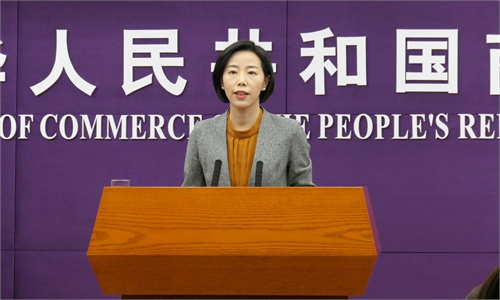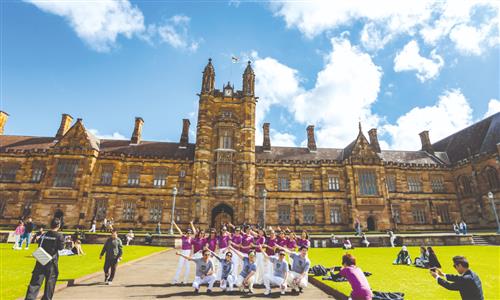
China-Australia Photo: VCG
During Australian Prime Minister Anthony Albanese's visit to China, the flames of a trade dispute caused by his predecessor were doused and had died down, but not extinguished. Albanese visited China with many business leaders, and his team and their Chinese counterparts worked together to remove many major hurdles, aiming to have a positive relationship. But after the meetings, it's action that counts. The Chinese side has repeatedly told Canberra that the two countries have "every reason to be partners of mutual trust and mutual achievement," but Australia is not exactly proving to be a "trusting partner."
If Australian media is to be believed, there is either a reset of the relations between China and Australia or no reset. The future of the relationship will either be positive or there will be more tensions.
Clearly, Australia's media have mixed messages on the relationship and are hedging their bets. As always, in international relations, the best way to assess their direction is to look at the nation's actions immediately after the meetings.
First of all, the Royal Australian Navy ship, HMAS Toowoomba got into a minor scrape with Chinese People's Liberation Army Navy CNS Ningbo, just a few days later. There has been much hullaballoo about this in Australia's media but with only cursory mentions in Chinese media, the differences between the two are stark.
Australia says it was an innocent action of clearing nets from the propeller of a ship in "Japan's exclusive economic zone" and they had told China's ship that they were doing this. The Chinese Ministry of Defense states that there is no demarcation between China and Japan in the relevant waters and that China's military activities did not take place within or enter Japan's exclusive economic zone. The Chinese ship was operating in accordance with international laws and regulations and China "did not engage in any actions that could have interfered with the Australian Navy divers' operations."
To many Australians, this is a cause for concern. The pride of the Australian Navy is coming off as rather weak and fragile because of the "minor injuries" reported. As a PR exercise, it might have been better to let this one slide, instead of bringing forward yet another accusation of "China's aggression." It's rather embarrassing to suggest that a ship, with the job of defending its own shores and in its own national waters could act aggressively toward a military vessel 4,000 kilometers from home.
To add insult to injury, HMAS Toowoomba then steamed through the Taiwan Straits which Australian media erroneously called "disputed waters." While there are admittedly issues between the island of Taiwan and the Chinese mainland, there have never been, and never will be any dispute in either place, or anywhere else for that matter, that the Taiwan Straits is Chinese.
This "sonar" incident, hyped up by Australian media and politicians as "China's aggression" met with criticism from Albanese, rather than an explanation as to what really happened; following that, the sail through and erroneous description of the Taiwan Straits and now, it's reported in Reuters, that Australia and the Philippines are conducting joint sea and air patrols in the South China Sea.
Both the Philippines and Australia rely heavily on China for trade but on the US for security and both countries hold China as their largest trading partner. The Philippines and Australia both speak of improving ties rather than restricting them but they also show signs of increasing wariness in dealing with a country that has shown no signs of aggression. China has been patient. However, the Australia-Philippines action could be perceived as being aggressive, assertive or even threatening. One thing is certain, it contributes to tensions rather than helps Australia quell those burning embers of the previous government's arson.
The author is a British Australian freelance writer who has studied cross-cultural change management in China and has lived in the country, traveling extensively for almost two decades. opinion@globaltimes.com.cn


